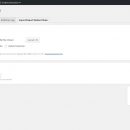3 Easy Steps to Become Your Own Retail Energy Broker

In today’s market, it’s more important than ever for businesses to actively manage their energy costs in order to remain profitable. While utilities will continue to be an important source of energy for the foreseeable future, new digital tools and services are making it easier than ever for businesses to take control of their energy costs and capitalize on new opportunities for savings. If you own a small business or operate a large facility that uses significant amounts of electricity, you may want to consider becoming your own retail energy broker. Becoming your own broker is fairly simple, but there are a few things you need to know before getting started. By reading the article below, you’ll have all the information you need to get started on your journey as a retail energy broker.
What is a Retail Energy Broker?
A retail energy broker is an individual or company that acts as a go-between for businesses and energy suppliers. The broker’s job is to find the best electricity rates and plans on behalf of their clients, and then help those clients sign up for the plans that make the most sense for their specific needs using the energy brokerage software. Retail energy brokers are not the same as retail electricity providers (REPs). While REPs actually generate their own electricity and sell it directly to customers, brokers do not generate or sell electricity at all. Instead, they can help you find the best electricity rates from all your different options as a residential or business customer. REPs are useful for people who want to purchase their energy directly from the source, but they are less helpful for businesses that want to find the best rates available and lock them in for a set term. Only retail energy brokers can help with this.
Research your options
The first step towards becoming your own broker is to do your research. You’ll want to compare the offerings of all the different retail energy brokerages so that you can determine which one is the best fit for you and your clients. There are popular retail energy brokerages which you might want to consider. Many of these brokerages will offer free trials, so it’s a good idea to try out a few until you find the one that’s the best fit for you and your business. You’ll also want to think about the various types of software for energy brokers that are available in the market. Many of the deals in the market today are short-term contractual agreements that are typically around one year in length. There are also a growing number of long-term contracts in the market, but you’ll want to be careful because these are more risky as they have less liquidity.
Sign up as a licensed broker
Once you’ve made your decision as to which retail energy brokerage you’d like to partner with, you’ll need to sign up as a licensed broker. In order to sign up as a licensed broker, you’ll need to meet a few requirements including having a valid business license, maintaining a certain amount of combined capital, and providing proof of insurance. The exact requirements will vary by state. Once you’ve signed up, you’ll be able to access the energy broker platform for your client portal, where you can start sourcing customers. If you’re just getting started, you can use the brokerage’s marketing campaigns to help get started bringing in customers. Alternatively, you can also choose to use your own marketing channels to bring in customers as well.
Get to work bringing in customers
Once you’ve signed up as a licensed broker and have access to your brokerage’s client portal, you can start bringing in customers. It’s best to think of this process as a numbers game. The more customers you bring in, the more profit you’ll make. There are a number of ways to bring in customers. Here are just a few:
– Networking – This is an oldie but a goodie. If you have friends or family members who are currently using an energy broker or plan on using an energy broker in the near future, encourage them to try out the services of your brokerage. If they like what they see, you’ll make a nice commission off of their business.
– Online – If you have a website, you can use it to get the word out about your retail energy brokerage. Alternatively, you can also use social media to get the ball rolling.
– Offline – If you’re more of a “get off the couch and meet people in real life” kind of person, you can also use traditional marketing channels such as flyers, posters, and advertisements on the side of trucks to get the word out about your retail energy brokerage.
Conclusion
As you can see from the above, becoming your own retail energy broker is relatively straightforward. All you need to do is conduct a bit of research, find the right brokerage for you, and then get to work bringing in customers. Once you’ve brought in a few customers, you’ll be able to sit back, relax, and enjoy the profits.


